SOS Social Circus Program
This project has ended.
Around the world, SOS Children’s Villages works with extremely vulnerable children and youth – helping to ensure that they have the foundation for a bright future.
An important part of this work is helping children and youth develop life skills that are vital for healthy relationships, academic success, future employability and successful integration into the community, such as self-awareness, self-confidence, emotional control, stress management, resilience and perseverance, patience, communications, teamwork, and interpersonal skills.
These “soft” skills can be difficult to define, teach and standardize, but they are critical. Young people need more than the “hard” skills of the traditional workplace. They also need confidence and the ability to deal with the challenges of everyday life.
SOS Children’s Villages and Cirque du Soleil have developed the SOS Social Circus program to help children and youth develop these important “soft” skills.
Since the program was first piloted in Mexico in 2014, the impact has been significant. Surveys from program beneficiaries and their caregivers show improvements in self-confidence, discipline, interpersonal skills and teamwork.
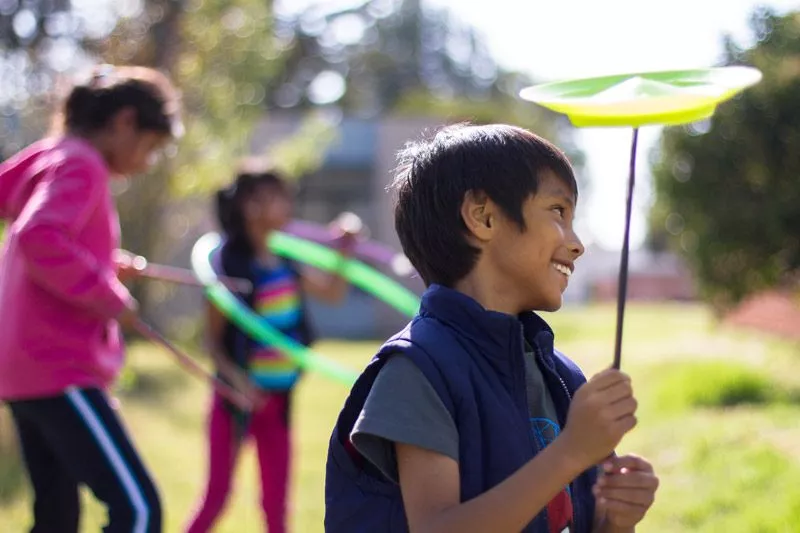
“I can see the transformation of the children through the social circus. They’re more confident in themselves. They know that nothing is impossible in life, that they will achieve anything they set their minds to. Now, they try harder in school and they think about having a career. They have dreams, which I know they will achieve.”
- Luisa Velázquez Romero, SOS Mother
SOS Social Circus in Vancouver, Canada
SOS Social Circus in Mexico
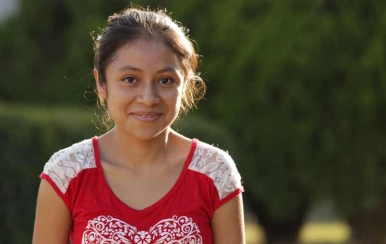
Faces of Social Circus - Mexico - Lucia
"I was always very shy but the social circus helped me overcome my fear of speaking with people."
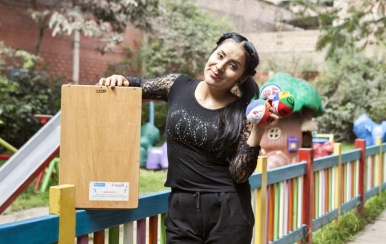
Faces of Social Circus - Peru
"My dream is to get a degree to become a schoolteacher. I know I can do it. I used to be really timid, but the social circus workshops have taught me to be confident"
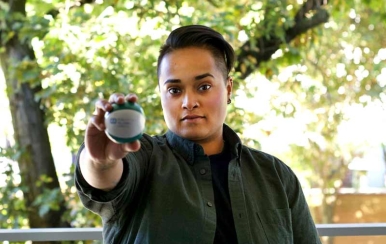
Faces of Social Circus - Vancouver
"It was Social Circus that allowed him to do something that was long overdue; to make a seamless transition back into the community".
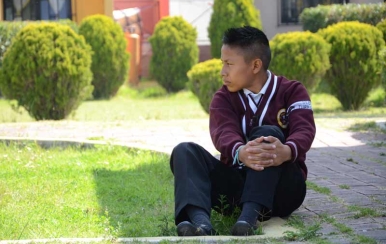
Faces of Social Circus - Mexico
"Social Circus helped me open up, make some good friends. I feel I’m part of a team because others help me and I help them".

Siyazama Social Circus - Philippi, Cape Town
Participants produce a “Show and Tell” that allows them to work toward a common goal, showcase their achievements, and celebrate their successes with the community.
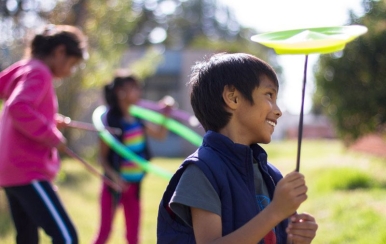
Cirque du Soleil
In partnership with Cirque du Soleil, SOS Children’s Villages is incorporating Cirque du Monde inspired programming into its work with vulnerable children and youth.
Who Benefits from the SOS Social Circus Programs
SOS Children’s Villages works with some of the world’s most vulnerable children and young people – those who have been orphaned, abandoned, neglected, or abused and, as a result, may struggle with mental illness, low self-esteem, issues of trust, high anxiety and fear.
These children and young people often lack opportunities and struggle to develop the core “soft” skills they need to form healthy relationships, integrate into their communities and succeed in school and future employment.
The SOS Social Circus program is a vital tool that SOS Children’s Villages uses to provide a caring and supportive environment for vulnerable children and young people to develop their soft skills.
The Science Behind the SOS Social Circus Program
Social exclusion and marginalization is both an economic problem and a personal tragedy. A study conducted in 2007 by the Government of Finland found that the annual cost to society of a socially excluded or marginalized individual is the equivalent of nearly $50,000 CAD in social services and lost revenue.
In the world’s least developed countries, where youth represent nearly 60% of the population and rates of social exclusion and marginalization are extremely high, the economic and social impact can be crippling.
When a young person drifts away from education, employment and social networks, social exclusion becomes a personal tragedy, and can lead to an increase in violent behaviour, substance abuse and crime. The problems of a marginalised young person tend to accumulate. The lack of social networks and lack of education increase social exclusion and economic vulnerability.
In 2013, the Centre for Practise as Research in Theatre at the University of Tampere published a study showing that “Social Circus programming is extremely effective at social rehabilitation and the prevention of social exclusion, because it meets several of the beneficiaries’ needs:
